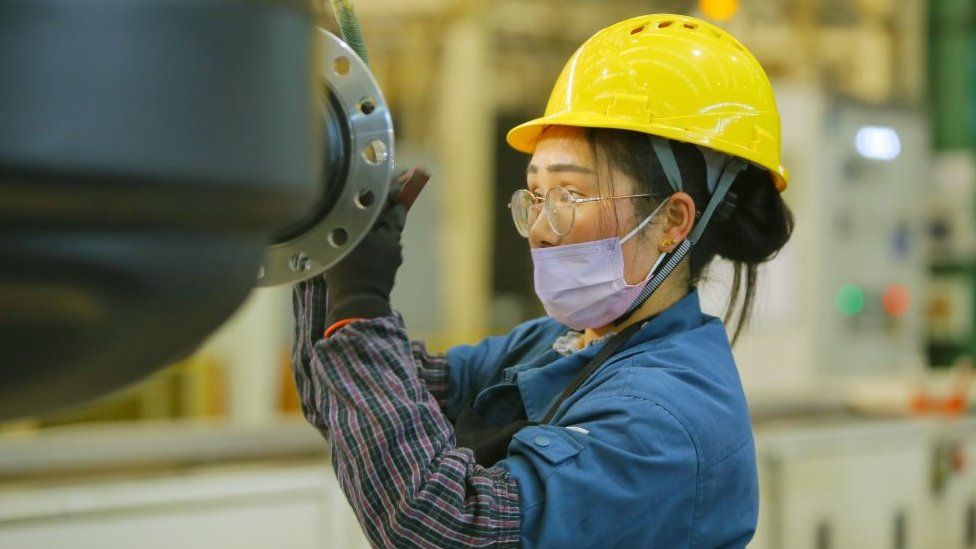Scholz in China calls for economic ties 'as equals'
China's Xi Jinping has urged deeper economic co-operation with Germany, during a visit by Chancellor Olaf Scholz to Beijing.
The trip has sparked controversy in Germany and concern elsewhere in Europe, after the Chinese leader cemented his grip on power.
Mr Scholz spoke of having "economic ties as equals, with reciprocity".
President Xi said the two countries should work together in "times of change and turmoil".
The chancellor's visit - the first by a G7 leader since the coronavirus pandemic - follows an extraordinary and bitter row within the Berlin government.
It had emerged that a Chinese company was poised to buy a significant stake in a part of the port of Hamburg. No fewer than six government ministers reacted furiously.
The deal, they argued, would give China significant influence over critical German infrastructure. Germany's security services also urged caution.
But the German chancellor appeared insistent the deal should go ahead. He reportedly pushed through an agreement, albeit one that limited the size and influence of the stake, reducing it to 24.9%.
No-one is quite sure why he seemed so determined. A former mayor of Hamburg, Mr Scholz remains close to the city authorities who argued that the deal represented vital investment.
But plenty of other commentators suspect an ulterior motive; that Olaf Scholz did not want to turn up in Beijing without a "gift" for Xi Jinping.
As has the chancellor's decision to take with him a delegation of German business executives. That was standard practice for his predecessor, Angela Merkel, who pursued a policy of "Change through Trade", believing that economic ties could influence political relations with countries like China and Russia.
The chancellor's visit comes hard on the heels of the National Congress of the Chinese Communist Party, at which President Xi tightened his grip on power and raised concerns in the West about his intentions towards Taiwan.
"The signal that's being sent is that we want to extend and intensify our economic co-operation - that must be questioned," says Felix Banazsak, a politician from the Green Party, a partner in Mr Scholz's coalition government.
The Greens have long sought a tougher line on China. Just a few days ago the party's foreign minister, Annalena Baerbock, sternly and publicly reminded him that his government came to power promising to readjust its China strategy.
Mr Banazsak says his country must learn from its previous dependence on Russian energy: "We must make ourselves as independent as possible from individual states, particularly if these are states which do not share our values."
But Olaf Scholz will be painfully aware of the complexity and depth of his country's ties with China, which remains Germany's largest trading partner, although Germany imports more than it exports.
More than a million German jobs depend on that relationship. Take as an example car giant Daimler, which sells more than a third of its vehicles in China.

In the first half of this year, German businesses invested more in China than ever before. Chemical company BASF has just opened a new plant in south China and expects to invest €10bn (£8.6bn; $9.9bn) in the site by the end of this decade.
On the eve of the visit, the head of the German Automotive Industry Association pointed to Germany's reliance on China for raw materials and warned that "de-coupling" would be an economic and geo-strategic mistake.
Her counterpart at the Association of Small and Medium Businesses also advised against a sudden change in course, saying "the advice can only be not to smash any Chinese porcelain now".
Chancellor Scholz is spending less than 12 hours in Beijing. His aim, he said ahead of his journey, was to find out how much co-operation was still possible - because "the world needs China" in the fight against the global pandemic and climate change.
"If China is changing, then our approach to China must change," he said.
Many in Berlin and beyond will be looking for evidence of that Mr Scholz's response to a shifting China may yet come to be the defining test of his chancellorship.




Post a Comment